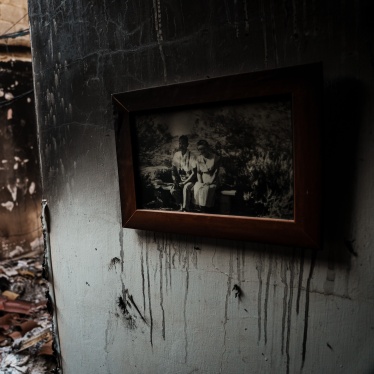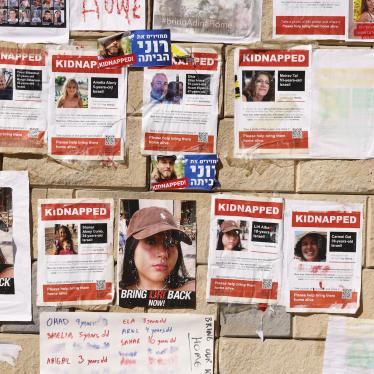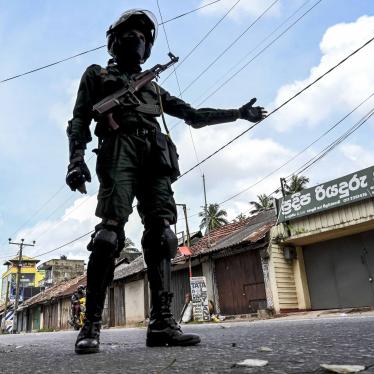VIA EMAIL TRANSMISSION, FACSIMILE, AND
FIRST-CLASS MAIL
Susilo Bambang Yudhoyono
President
Republic of Indonesia
Istana Merdeka
Jakarta Pusat 10110
Indonesia
Re: Commutation of death sentences for Amrozi bin H. Nurhasyim, Ali Ghufron (aka Mukhlas) and Imam Samudera
Dear President Yudhoyono:
We write to urge you to commute the death sentences of Amrozi bin H. Nurhasyim, Ali Ghufron (aka Mukhlas), and Imam Samudera, three men who are facing imminent execution.
As you are aware, in 2003 the Denpasar District Court sentenced the three men to death for their central role in the 2002 Bali bombings, which killed 202 people and injured an additional 209. In 2007, Indonesia's Supreme Court denied the defendants' appeals, rejecting the claim that the 2003 counterterrorism law under which the defendants were convicted and sentenced to death should not be applied retroactively. On October 21, 2008, Indonesia's Constitutional Court rejected the men's latest petition, which had argued that execution by firing squad inflicts torture on the condemned and as such is a violation of Indonesia's Constitution. On October 24, 2008, the Attorney General's Office confirmed that the three men will be executed in early November 2008.
Human Rights Watch deplores acts of terrorism and recognizes the government's duty to bring to justice persons responsible for such serious crimes. We condemn the 2002 Bali bombings as horrific and inexcusable attacks, and believe that the perpetrators should be held to account.
We strongly believe, however, that the death penalty is not an appropriate sanction, particularly in this instance.
The International Covenant on Civil and Political Rights, to which Indonesia is party, prohibits in article 15 the retroactive application of penal legislation. As such, the Law on Combating Criminal Acts of Terrorism related to the Explosion of Bombs in Bali (Law 16/2003)-the basis for the death sentence in these cases-should not have been applied to Amrozi, Ghufron, and Imam Samudera.
In addition, Human Rights Watch strongly opposes the death penalty in all circumstances because of its inherent cruelty and finality. The intrinsic fallibility of all criminal justice systems assures that innocent persons may be executed even when due process of law is respected. We also note that there is no clear evidence that the application of the death penalty serves as a more effective deterrent against criminal activity than other forms of punishment.
On December 18, 2007, the United Nations General Assembly adopted by a wide margin a resolution calling for a worldwide moratorium on the death penalty. Urging all states that still maintain the penalty to establish a moratorium on executions, the resolution states that "there is no conclusive evidence of the death penalty's deterrent value and that any miscarriage or failure of justice in the death penalty's implementation is irreversible and irreparable." The resolution further considers that "use of the death penalty undermines human dignity."
Human Rights Watch is deeply concerned that, contrary to the global trend toward the abolition of the death penalty, Indonesia retains the use of capital punishment and has recently begun increasing the rate of executions. Following a 14-month hiatus, Indonesia resumed executions in June 2008 by putting to death two Nigerian men convicted of drug trafficking. A further four Indonesians were executed in July and August 2008. Human Rights Watch is also concerned that over 100 prisoners remain on death row in Indonesia, and that in June 2008 the government announced its intention to speed up the execution of drug offenders on death row.
Today 133 countries have ceased to use the death penalty, including Indonesia's neighbor the Philippines, which abolished capital punishment in 2006. Notably, Indonesia's own Constitutional Court recommended in October 2007 that the death penalty be amended to include a 10-year probation period during which the demonstrated remorse and good behaviour of the prisoner could result in the death sentence's commutation to life or 20 years in prison.
Your Excellency, we understand that the three men have refused to ask for clemency, yet we urge you in the strongest terms to use your powers to halt the executions of Amrozi bin H. Nurhasyim, Ali Ghufron (aka Mukhlas) and Imam Samudera. Rather than allow the executions to go forward, you should commute the men's sentences to life in prison.
Thank you for your attention to this serious matter.
Sincerely,
Joanne Mariner Elaine Pearson
Terrorism and Counterterrorism Director Asia Division, Deputy Director
Letter to President Yudhoyono of Indonesia
Your tax deductible gift can help stop human rights violations and save lives around the world.
Most Viewed
-

-
July 17, 2024
“I Can’t Erase All the Blood from My Mind”

-

-
June 14, 2018
Leave No Girl Behind in Africa

-
December 7, 2011
"How Come You Allow Little Girls to Get Married?"


